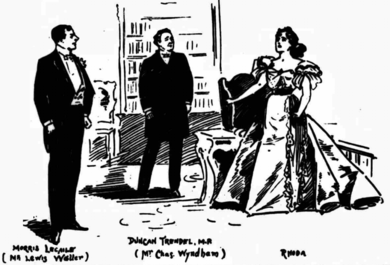
The Home Secretary is a four-act play by R. C. Carton, first produced in 1895 in the West End of London.

The Home Secretary is a four-act play by R. C. Carton, first produced in 1895 in the West End of London.
The play was first given at the Criterion Theatre, London, under the actor-manager Charles Wyndham. It opened on 7 May 1895 and ran for 72 performances until 20 July. [1]
The play was revived on 21 October 1895 at the Shaftesbury Theatre. Fred Terry took over the role of Trendel, Lottie Venne played Mrs Thorpe-Didsbury, and Brough, Brookfield, Waller, Neilson and Millett reprised their original roles. The run ended on 13 November, after 21 performances. [2] The piece was staged on Broadway in November 1895, starring Herbert Kelcey and Isabel Irving as the Trendels and J. K. Hackett as Lecaile. [3]
Trendel and his wife, Rhoda, have drifted apart: she is disillusioned by his change from idealist to party careerist and cabinet minister. She is attracted to Lecaile, who is in fact a dangerous anarchist whose real name, well known to the police, is Dangerfield. He is betrayed by a colleague, and resorts to burglary of Trendel's house to recover an incriminating document. Unknown to him, Rhoda is asleep in an armchair in the room he is searching. She wakes and confronts him. Trendel discovers the two together and jumps to the conclusion that they are carrying on behind his back. To save her reputation, Dangerfield admits his identity and his reason for being in the house. Trendel, touched by Dangerfield's gallant conduct, allows him to depart, but having let an anarchist go, he feels obliged to write to the prime minister resigning his office. Rhoda, moved by this evidence of humanity and scruple on her husband's part, is reconciled with him.
The main plot is interwoven with the romance of Trendel's nephew (and secretary) and the ingénue Esme in the face of her family's attempts to marry her off to an elderly peer. The action includes the comings of goings of friends and colleagues of varying degrees of eccentricity. [4]
The Era thought the characters well written, and the dialogue "smart, unforced and up to date", but found the action slow until the final act. [4] The Morning Post praised the author's skill in balancing the comic, the tender, and briefly near-tragic elements of the piece. [5] The Standard thought the dialogue neatly written, but "the action moves very slowly". [6] When the piece was staged on Broadway, The New York Times found it fluently written, with "a moderate infusion of wit" and serviceable characterisation and plot. [3]

An Ideal Husband is a four-act play by Oscar Wilde that revolves around blackmail and political corruption, and touches on the themes of public and private honour. It was first produced at the Haymarket Theatre, London in 1895 and ran for 124 performances. It has been revived in many theatre productions and adapted for the cinema, radio and television.

The Criterion Theatre is a West End theatre at Piccadilly Circus in the City of Westminster, and is a Grade II* listed building. It has a seating capacity of 588.
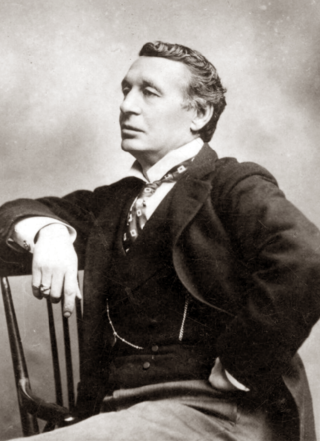
Sir Charles Wyndham, néCharles Culverwell, was an English actor and theatre proprietor. Wyndham's Theatre in London is named after him, and he also built the New Theatre nearby.

Charles Hallam Elton Brookfield was a British actor, playwright and journalist, including at The Saturday Review. His most famous work for the theatre was the Edwardian Musical Comedy The Belle of Mayfair (1906).

Violet Augusta Mary Bourchier, née Barnes, known professionally as Violet Vanbrugh, was an English actress with a career that spanned more than fifty years.

Hubert Henry Davies was a leading British playwright and dramatist of the early 20th century, following in the tradition of Arthur Wing Pinero and Henry Arthur Jones, but influenced profoundly by Thomas William Robertson.

Frederic Lewis Tuffley, better known by his stage name, Eric Lewis, was an English comedian, actor and singer. In a career spanning five decades, he starred in numerous comedies and in a few musical comedy hits, but he is probably best remembered today as the understudy to George Grossmith in the Gilbert & Sullivan comic operas of the 1880s who left the D'Oyly Carte Opera Company just in time to give Henry Lytton his big break.

Rookery Nook is a farce by the English playwright Ben Travers based on his own 1923 novel. It was first given at the Aldwych Theatre, London, the third in the series of twelve Aldwych farces presented by the actor-manager Tom Walls at the theatre between 1923 and 1933. Several of the actors formed a regular core cast for the Aldwych farces. The play depicts the complications that ensue when a young woman, dressed in pyjamas, seeks refuge from her bullying stepfather at a country house in the middle of the night.

Minnie Gertrude Ellis Jeffreys was an English actress, best known for her comedy roles.
Frances Whiteside Brough was a Paris-born British stage actress who came from a literary and dramatic family. She is remembered especially for her many comedy roles performed over a four decade-long career.

The Pink Dominos is a farce in three acts by James Albery based on the French farce Les Dominos roses by Alfred Hennequin and Alfred Delacour. It concerns a plan by two wives to test their husbands' fidelity at a masked ball and a mischievous maid who causes comic complications by wearing a gown similar to those worn by the wives. The "dominos" of the title are gowns with hoods and masks, worn at masquerades. The piece opened on March 31, 1877 and was exceptionally successful, running for a record-setting 555 performances. Charles Wyndham played one of the husbands and produced the piece at the Criterion Theatre. Augustus Harris played Henry and Fanny Josephs was one of the wives.

A Cuckoo in the Nest is a farce by the English playwright Ben Travers. It was first given at the Aldwych Theatre, London, the second in the series of twelve Aldwych farces presented by the actor-manager Tom Walls at the theatre between 1923 and 1933. Several of the cast formed the regular core cast for the later Aldwych farces. The plot concerns two friends, a man and a woman, who are each married to other people. While travelling together, they are obliged by circumstances to share a hotel bedroom. Everyone else assumes the worst, but the two travellers are able to prove their innocence.
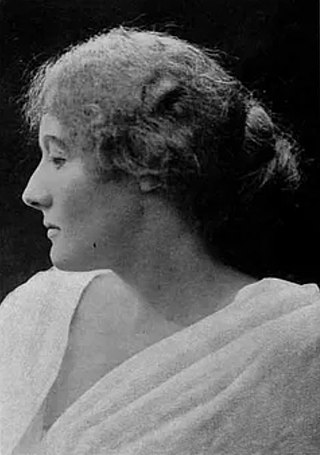
Hetta Bartlett was an English stage and film actress whose career spanned both the West End and Broadway. She is known for Sonia (1921), The Lady of the Lake (1928) and Honour in Pawn (1916).

Mary Charlotte Moore, Lady Wyndham, was an English actress and theatrical manager. She was known for her appearances in comedies alongside the actor-manager Charles Wyndham between 1885 and his retirement in 1913. Over these three decades they acted mainly in contemporary plays, many written for them by authors including Henry Arthur Jones and Hubert Henry Davies, but also appeared in classic comedies together. She continued to act on stage until 1919. She was married to the playwright James Albery from 1879 to 1889, and after his death her relationship with Wyndham eventually became romantic. After the death of Wyndham's estranged wife in 1916, he and Moore married.

Alfred Maltby was an English actor, costume designer, playwright and columnist. He began his theatrical career in 1872, becoming a much sought-after costume designer in the West End. By 1875 he began to write comic plays, which were successfully staged. Persuaded to take a role in one of his own pieces in 1876 he also began an acting career in which he specialised in playing comic, eccentric and usually elderly characters, for which portrayals he also earned enthusiastic reviews.
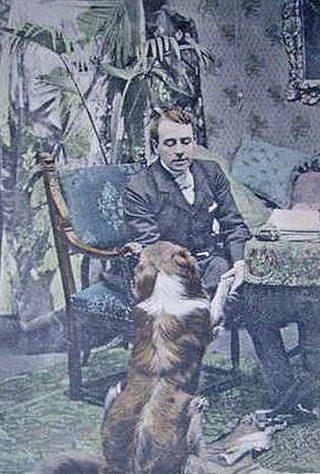
Cosmo Charles Gordon-Lennox, whose stage name was Cosmo Stuart, was a British actor and playwright of the late 19th and early 20th centuries. He became known as an actor in the 1890s, but by the turn of the century he had begun to concentrate on writing, usually under his real name. He specialised in adapting French comedies for the British stage, but also wrote original works, often as vehicles for his wife, the actress Marie Tempest.

Florence Isabella Brandon, known by her stage name Florence West, was an English actress, who created roles in new plays by Oscar Wilde and Bernard Shaw. She married the actor Lewis Waller and frequently appeared with him in the West End and on tour until her retirement in 1905.
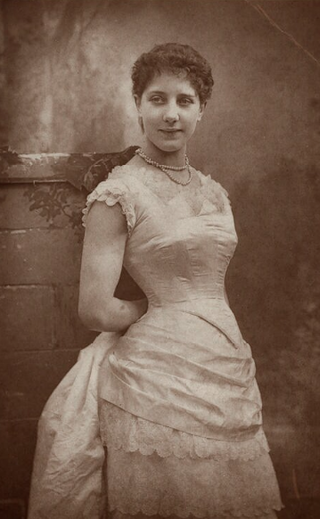
Ethel Maude Millett was a British actress of the late 19th and early 20th centuries, known for her roles in drawing room comedies. She created roles in plays by Arthur Wing Pinero, Oscar Wilde and J. M. Barrie among others.

Lady Huntworth's Experiment is a three-act comedy by R. C. Carton, first presented in London in 1900. It depicts an aristocrat working under an assumed name as a cook, and finding happiness with a retired military man. After its West End run, it was played by touring companies around Britain, and was staged on Broadway and in Australia and New Zealand.

Rosemary, That's for Remembrance is an 1896 play by the British writers Louis N. Parker and Murray Carson. The four-act comedy with three settings is often just referred to as Rosemary. The title refers to the associations of the herb in folklore. The story concerns the attempt of a middle-aged bachelor to help an eloping young couple reconcile with the girl's parents, his growing fascination with her, and his later melancholy. The first three acts take place in 1838, culminating with Queen Victoria's coronation day, while the last act occurs on the start of the monarch's Golden Jubilee year.